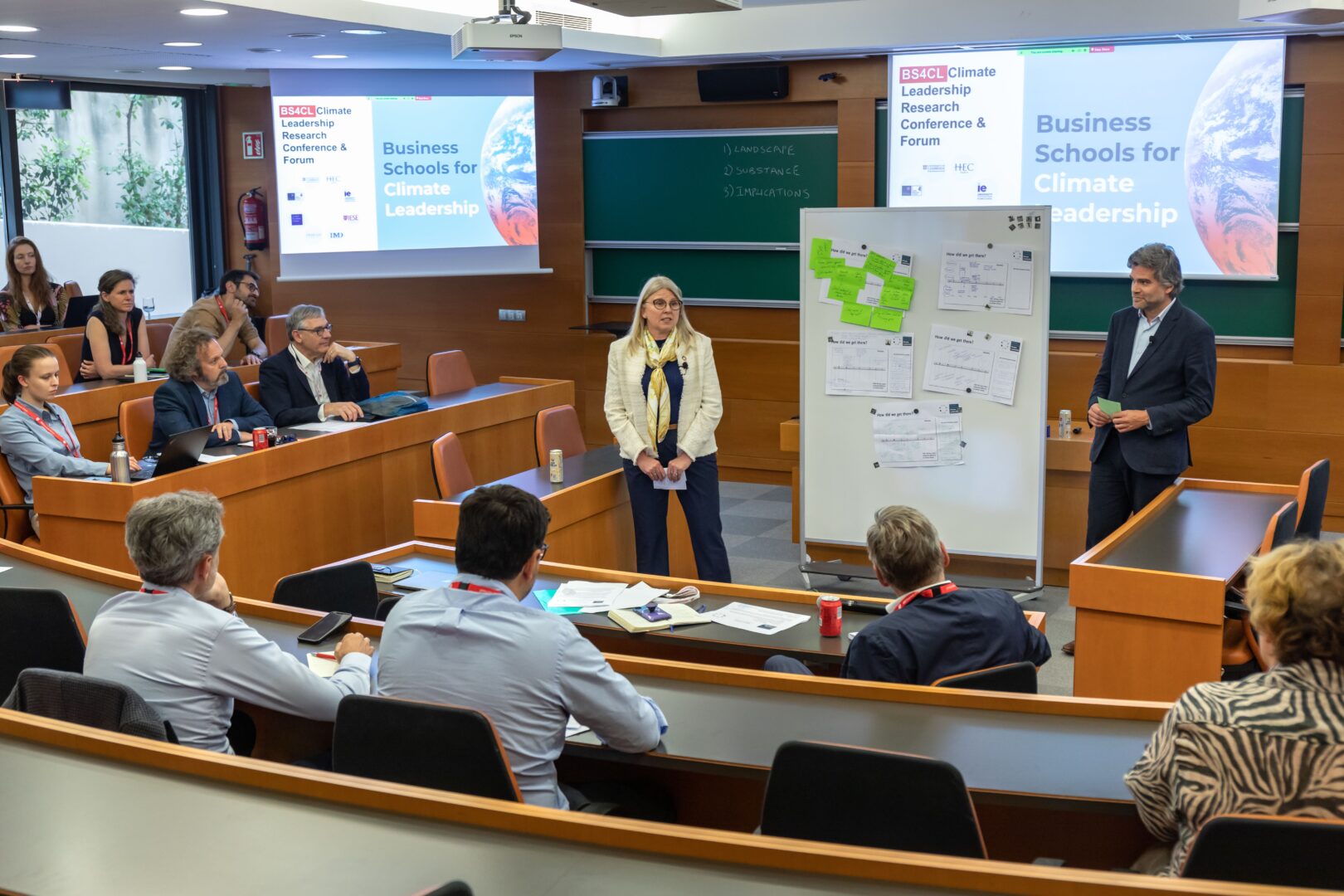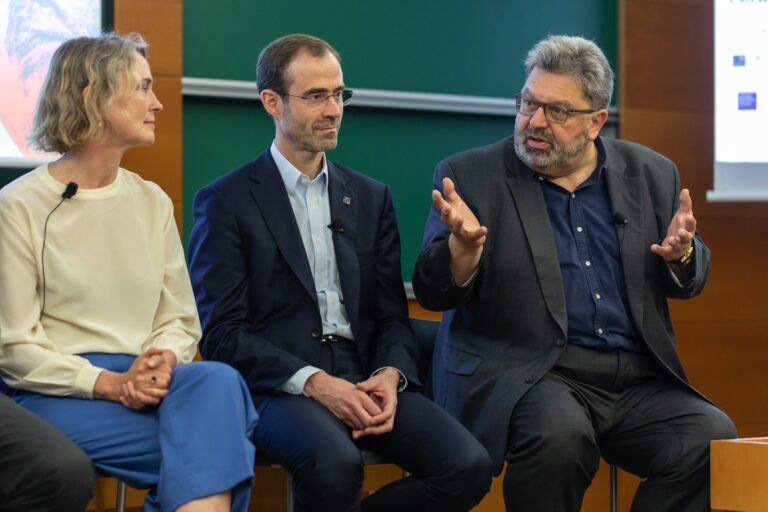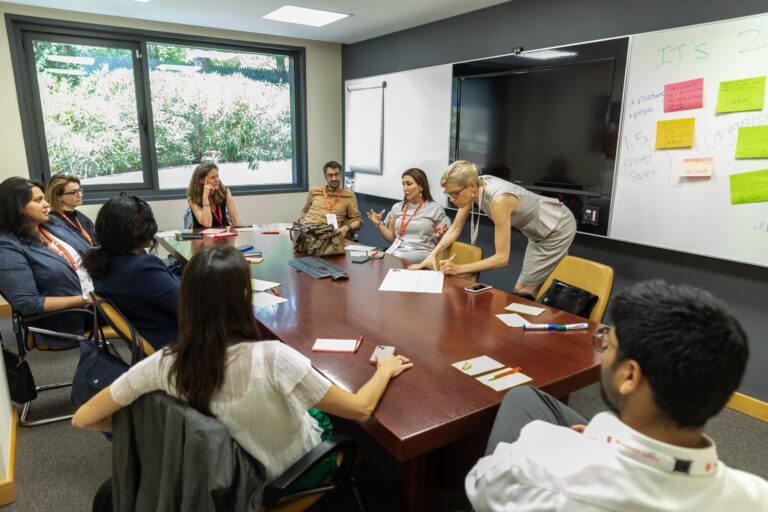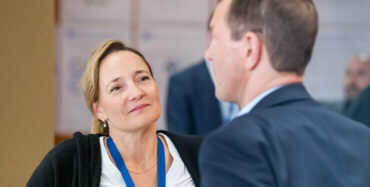
That was one of the main conclusions of a conference of eight leading European schools which together comprise the Business Schools for Climate Leadership (BS4CL) initiative. BS4CL members and business leaders met on 1-2 June 2023, on IESE’s Barcelona campus for their first in-person event since the group’s creation in 2021.
The alliance is made up of Cambridge Judge Business School, HEC Paris, IE Business School, IESE Business School, INSEAD, International Institute for Management Development (IMD), London Business School (LBS), and Saïd Business School at the University of Oxford.
The schools agreed that there is growing demand from businesses and their leaders for knowledge and skills on sustainability-related issues. Business schools, with their rigor and depth, are well-placed to provide that content and training. To get there, collaboration and speed are of the essence.
“Our alumni are asking us: ‘What are you doing (in sustainability)? I would like to learn more about how to be an effective leader in the context of sustainability,’” said IESE Dean Franz Heukamp. “People for the first time actively realize that they need to learn.”
In addition to generating more content on sustainability, schools must stay true to the core management teachings that prepare students to lead in a changing world, whatever the challenge may be. “Our programs are designed to prepare individuals for the world in which they live,” said IMD President Jean-François Manzoni.
There is strength in numbers, which BS4CL must exploit. While each of the universities is outstanding on its own, together the institutions offer the potential for research collaboration across industries, disciplines, and borders. They can also mobilize their alumni, which collectively number 500,000 people.
“Much of our power is in the platform we create and how we help people to connect,” said François Ortalo-Magné, Dean of London Business School.
The BS4CL conference was composed of two parts: the 1 June BS4CL Climate Leadership Research Conference, which showcased new evidence-based ideas on climate change from the eight universities, and the BS4CL Forum: Leading Decarbonization, which brought academics and business leaders together on 2 June.
Business leaders seek knowledge and training
Business leaders echoed the need for knowledge and skills while stressing the imperative for action. Stakeholders are demanding greener business models, and there’s growing evidence that sustainability makes not only ethical but also business sense.
No employee should remain on the sidelines of sustainability. It must start at the top and permeate the organization in what Ester Baiget, President & CEO at biotech company Novozymes, calls a “full ecosystem” of support. “You need a board that supports the CEO,” she said. “If you don’t have that support, it’s impossible.” Sonia Tatar, a board member at Chapter Zero France agreed: “The role of the board is to set the tone from the top.”
That must trickle down. Companies that want to be considered responsible externally must believe in it internally, said Andrea Baldo, CEO at Danish fashion brand Ganni. “It’s about how you nurture this culture internally,” he said.
Another issue raised during the conference was the need for reporting and disclosure standards. Richard Barker, a board member at the International Sustainability Standards Board (ISSB), said the long-standing practice of voluntary reporting on ESG issues is likely to change, especially in Europe, to be more mandatory and standardized.
This will require a radically different approach to reporting since it incorporates non-monetary metrics and the entire value chain – not just internal operations. It not only contemplates a company’s activities over the past year but also what it will do going forward. New skills, accounting and otherwise, are needed. “There’s a massive gap between what the world needs to know and what the world needs to do and where we are now,” Barker said.
Business schools may contribute at different levels. Their graduates can bring in the skillsets needed – from general competencies such as the ability to collaborate, to more specific knowledge such as green accounting standards and best practices. Professors bring expertise and perspective to bear. While companies tend to have a narrow view of their own operations, and perhaps those of their competitors, academics can take a view that is both broader and deeper on what it means to be a sustainable leader and company.





